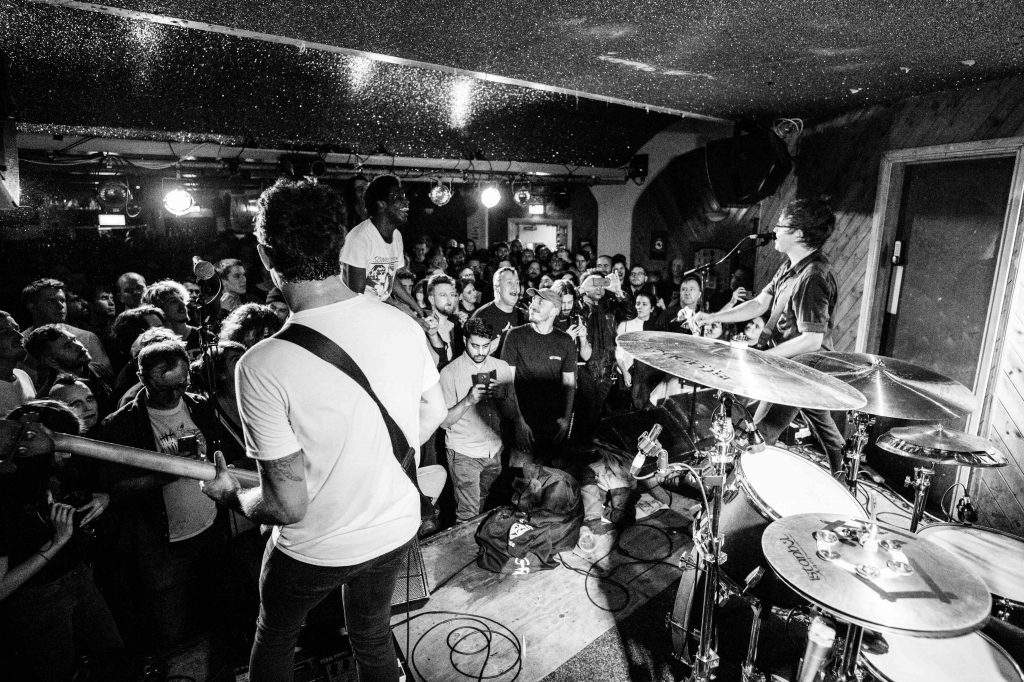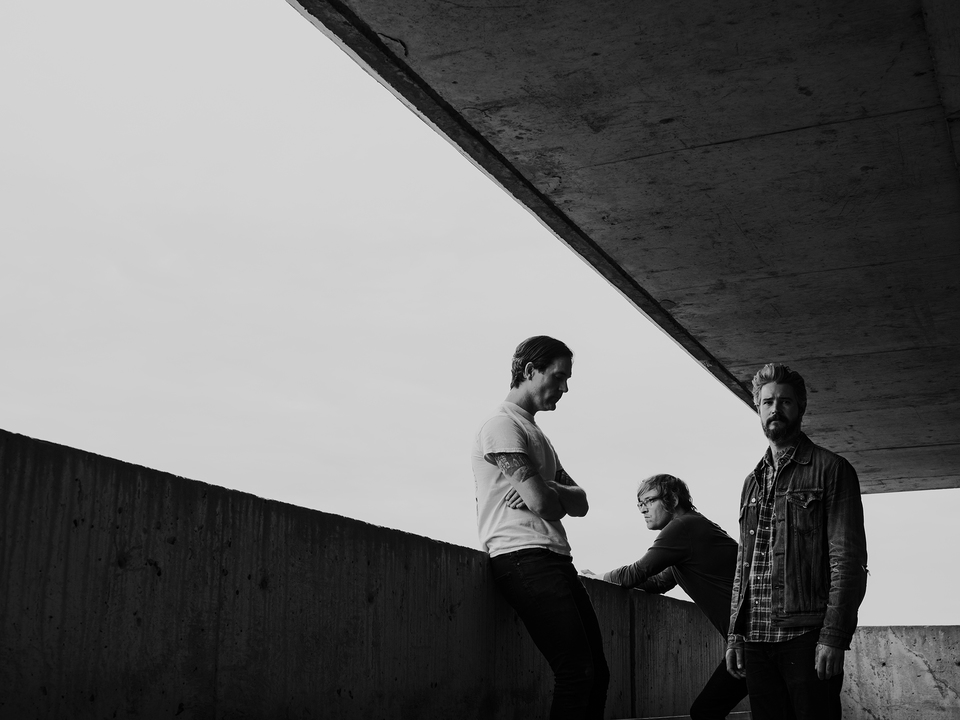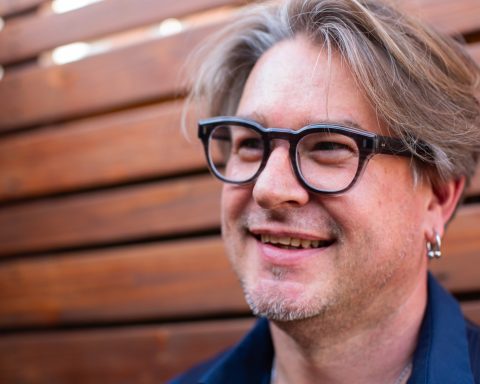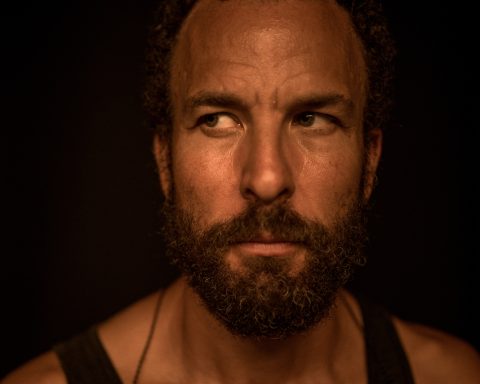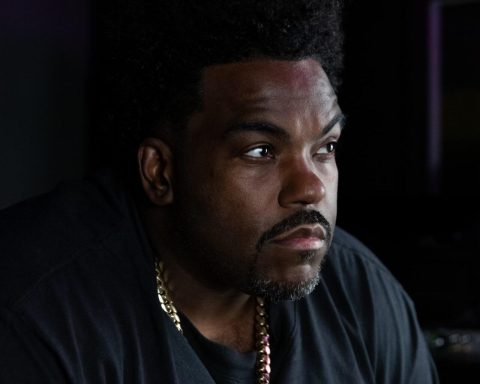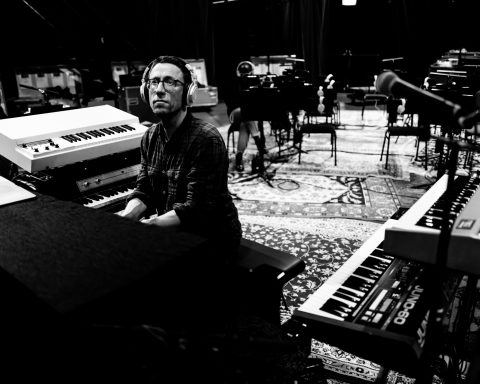Toronto band METZ blends noise, hardcore, shoegaze, and a host of other genres into their brand of propulsive punk rock. Guitarist/vocalist Alex Edkins, bassist Chris Slorach and drummer Hayden Menzies have kept the DIY flame going since 2007.
Chris and I have a history that extends beyond this interview, having toured several countries in the same outfit. In that regard, this exchange feels rather special. He took the time to talk about the band’s history, the importance of keeping venues alive, and playing their new album at the Toronto Opera House.
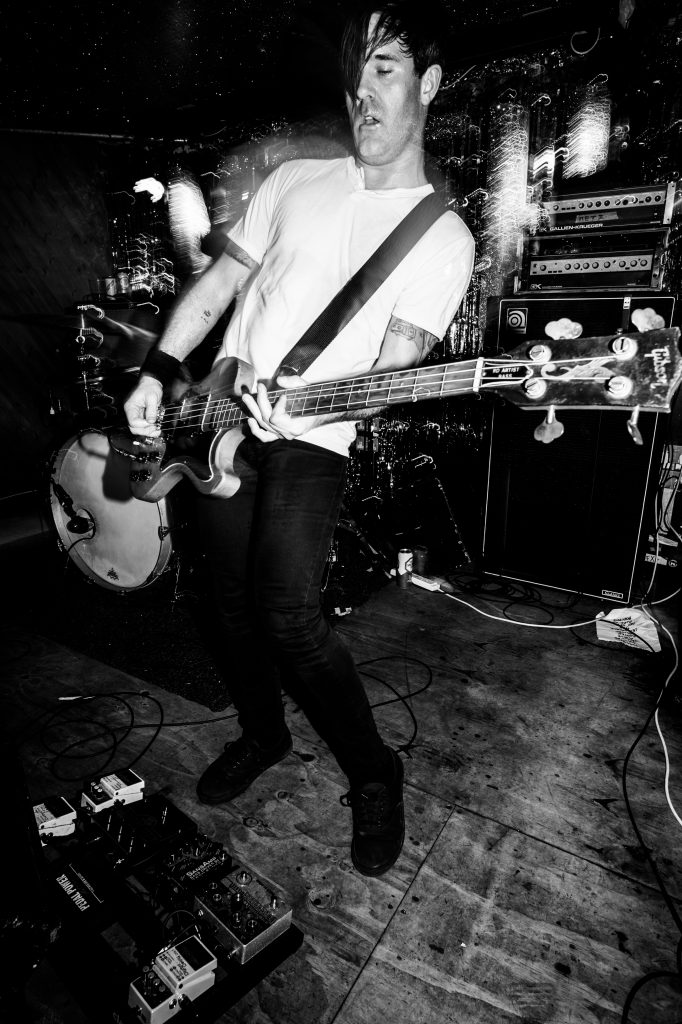
Introducing the Band
For those at home getting to know METZ, can you give us a quick glimpse of how you guys got started?
The band began in 2007, but our first record didn’t come until 2012. Our friends in a group called Quest for Fire asked us to play at their record release show. We did that one show and it was like taking a Band-Aid off. We started playing shows and then slowly released three 7-inches on a local label. The band was slow to put out music in the beginning because we were figuring who we were and what we were doing as a band. We put out those singles and eventually started making our first record about five years into the band.
What was the name of that record?
It was self-titled. We didn’t start titling our albums until the third one.
A Legendary Label
How did you get connected with Sub Pop records?
It was through my friend’s band, the Constantines. We sent Chris Jacobs at Sub Pop the record and didn’t hear from him for three weeks. It had been a while, so we figured we’d release it ourselves. Then, we got an email that said, “Apologies for being slow. We like the record and want to work with you guys.” A few weeks later, we had a contract.
"It’s gone from being a band that makes music to my two brothers and best friends. We share a collective goal."
I should also mention we played a handful of shows with Mudhoney and legend has it—though it hasn’t been confirmed—that Mark Arm vouched for us.
That must have been a big life-changer.
We signed with Sub Pop and the record came out in October of 2012. After that, we all took leave from our jobs to go on tour and played 300 shows that year. That got the ball rolling, and it didn’t stop.
So, we kept going, and here we are. It’s 2020, and we’re putting out our fourth full-length. We also have several singles and a rarities collection out. We’re still writing away and getting along. METZ has gone from being a band that makes music to my two brothers and best friends. We share a collective goal.
Building an Audience
Anywhere you go in the world, people wear METZ shirts. So much grinding goes into building that kind of foundation. You’re forfeiting sleep and personal life to go and play.
I don’t ever take for granted that I’m able to be a musician as my job, especially playing niche music. It comes from hard work, but also from lightning striking at the right time. We feel fortunate to meet people and play every night. It’s never lost on me.
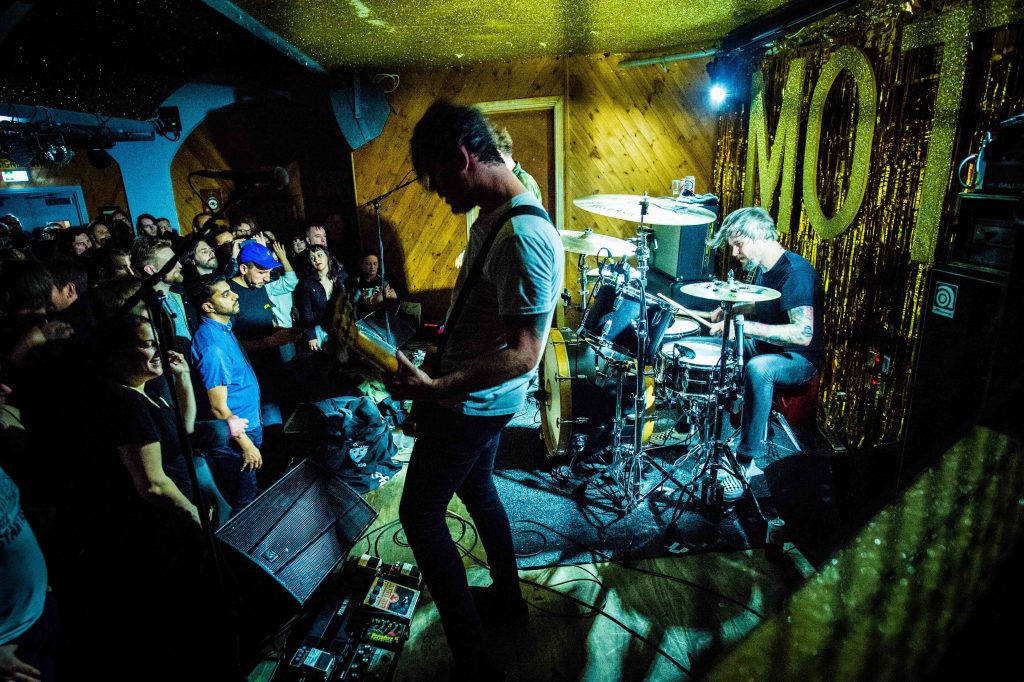
"Those early shows made me realize you don't have to be a virtuoso. Just show up and play with all the heart in the world."
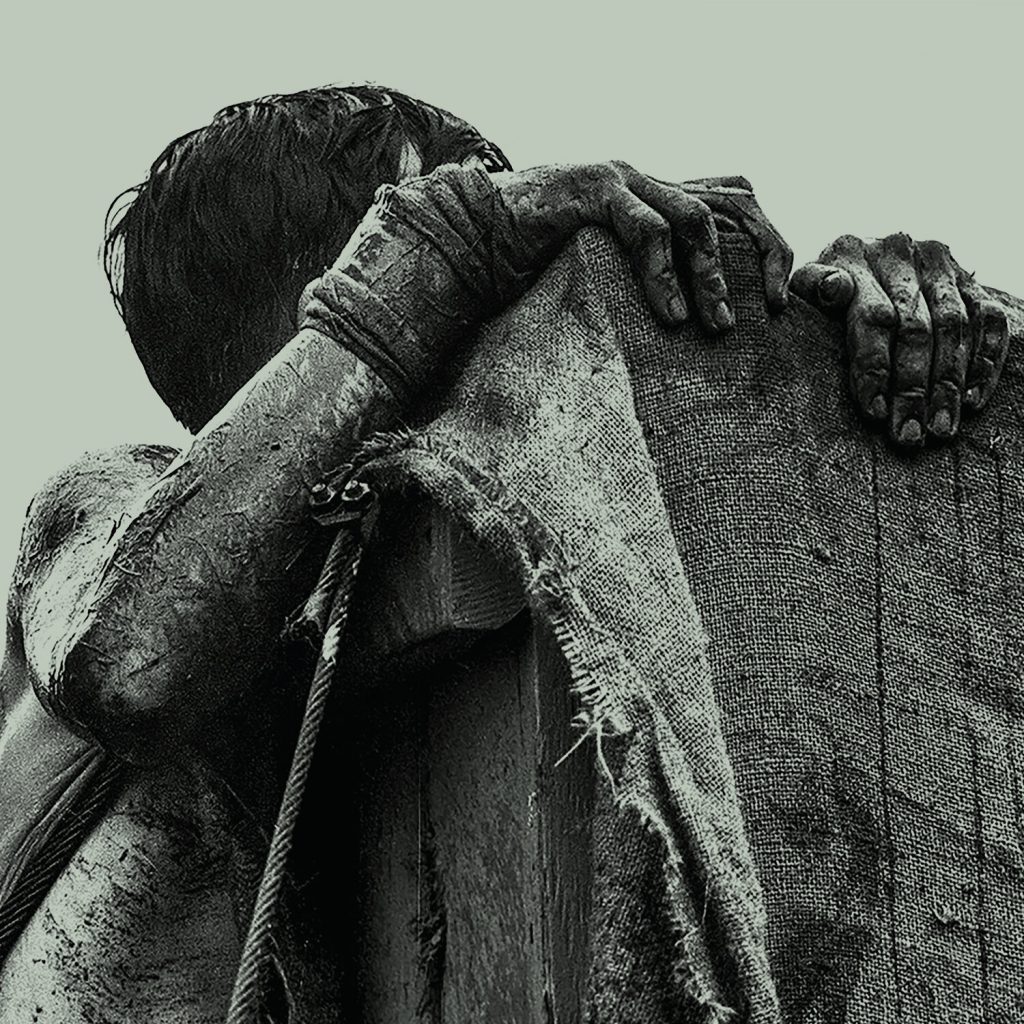
We’re in the middle of a lockdown, and it appears you came up with a pretty cool workaround for your most recent release. Can you tell us a little bit about how you came up with the idea to livestream your new record at the Toronto Opera House?
I have a pretty deep history with them. When I was a kid, about 13 years old, I used to go see bands play there. They would do these all-ages matinees were 12 bands would play. It was a place where I dipped my toe in the water with live music and inspired me.
Over time, I started putting on shows myself. I developed a relationship with Athena and Gus who run the Opera House, while also meeting people who run other venues in the city. Those early shows made me realize you don’t have to be a virtuoso. Just show up and play with all the heart in the world—you don’t have to be amazing.
A Night at the Opera
Tell us about the process of putting this event for Atlas Vending together.
We like every METZ show to feel like an event, and wanted this livestream to be in a nice space like the Opera House. It’s odd to play to nobody and try to get into the music. We figured if there were an elevated stage and a proscenium, we could create an environment where we’d feel comfortable playing.
"We would love to be out blowing people's hair back. Instead, we hope people are throwing it on turntables and cranking it up."
Also, we wanted to shine a light on a venue we respect in the city. Will Schatz, who basically built the entire sound system in the place, helped us put it together. We also brought in friends of ours who are amazing directors and editors. We did what we could to use what little money we had in our pockets to present the album in a way that did it justice.
Atlas Vending is a live record, and we would love to be out blowing people’s hair back with it. Instead, we hope people are throwing it on their turntables and cranking it up a little bit. We created the event to convey some of the energy of the record.
Sonic Journey
The record starts one place and ends another. Can you go into detail about its evolution?
“Pulse,” the opening track, was the first song we wrote for the album. The last song on the record, “A Boat to Drown In,” felt like a shoegaze track. We didn’t know if it would make the record. Then we recorded it and it had a nice, hypnotic feel, so we kept building on it. Our goal as a band is to constantly evolve.
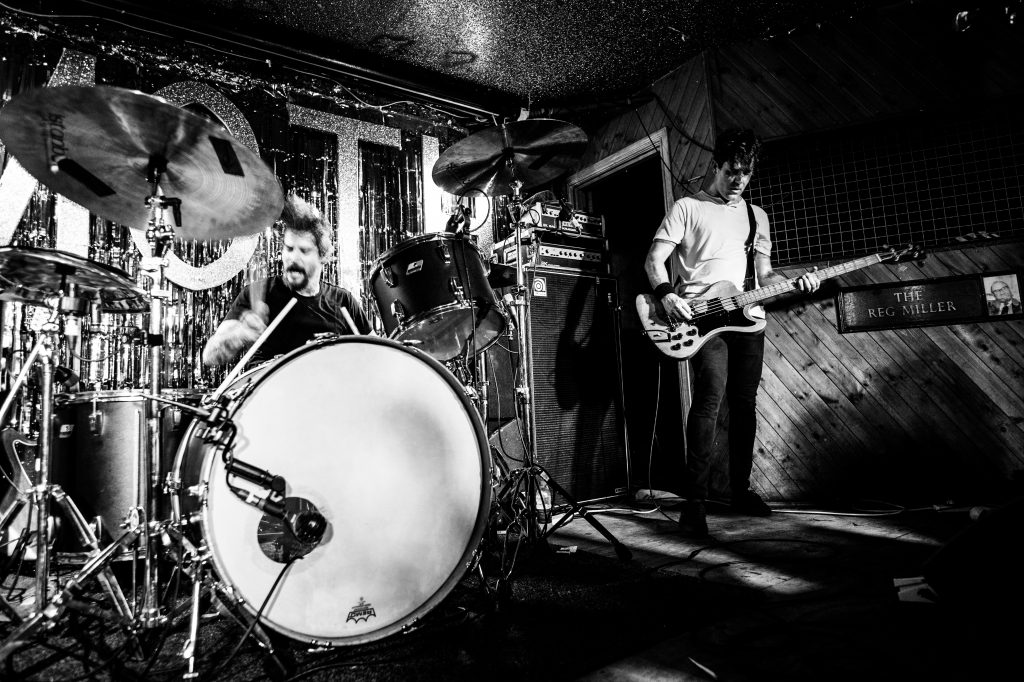
"We did what we could to use what little money we had in our pockets to present the album in a way that did it justice."
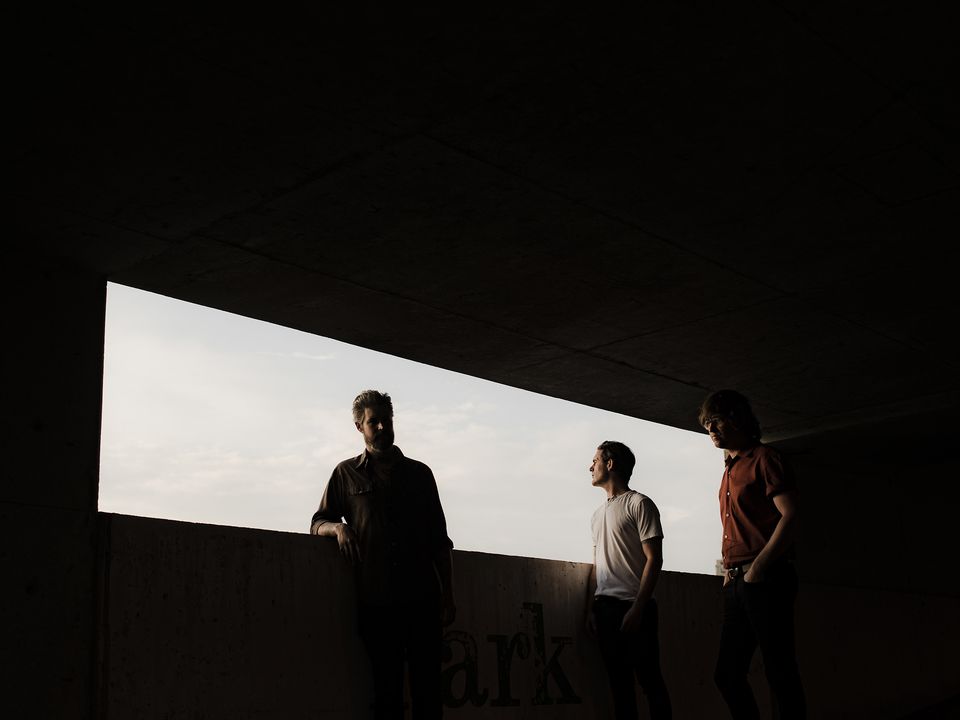
Regarding the way the record flows, that’s one of the most important aspects to us. When you’re sequencing an album, it’s supposed to be a story. That’s why streaming platforms aren’t the best way to take in a record. Musicians spend a lot of time sequencing their albums to take you on a journey from start to finish.
There’s a tension that opens this record and continues throughout the whole album. By the time you get to the end, you feel relief. That’s intentional. It’s supposed to have peaks and valleys.
Supporting Live Music
A lot of people are thinking about the health of local music venues right now. You work at one in Toronto, correct?
Yes, I do. I work in a larger theater in Toronto called the Danforth Music Hall. It’s a fifteen-hundred capacity theater. But I also have friends who own smaller venues where bands come to build their audience.
There needs to be government funding to keep those doors open. Venues like those are bringing culture to cities like Toronto. Without funding or a break in taxes or rent, those spots are going to disappear. When you remove places for people to play music, you remove culture, and things start to dry up.
"When you remove places for people to play music, you remove culture, and things start to dry up. Bands need a place to start."
Would you share any thoughts about why we need to help these spaces survive? A lot of us are looking for ways to keep music venues alive right now.
Bands need a place to start. We need smaller capacity venues so that bands can start out and move to a larger room. If they don’t exist, what do we get? We get arena rock bands. And that’s the only music that will come to your city.
Toronto is a really good city for music, and that can only exist as long as these places survive. I love a basement show, but I’m in my forties. It feels weird going to one now. I feel like a cop saying, “Hey, what are you kids doing here? You checking out this cool punk band?”
Future Plans
METZ has recorded with names like Steve Albini, and released splits with Swami John Reis and Mission of Burma. Are there other artists or producers you’d like to work with in the future?
Pig Destroyer. And I’d love to do something with Deerhoof. That band’s amazing.
How can people get their hands on this record?
Go to SubPop.com, our Bandcamp, or the METZ merch page. You can also steal it from the internet. We don’t care how you get it, just listen to it.
